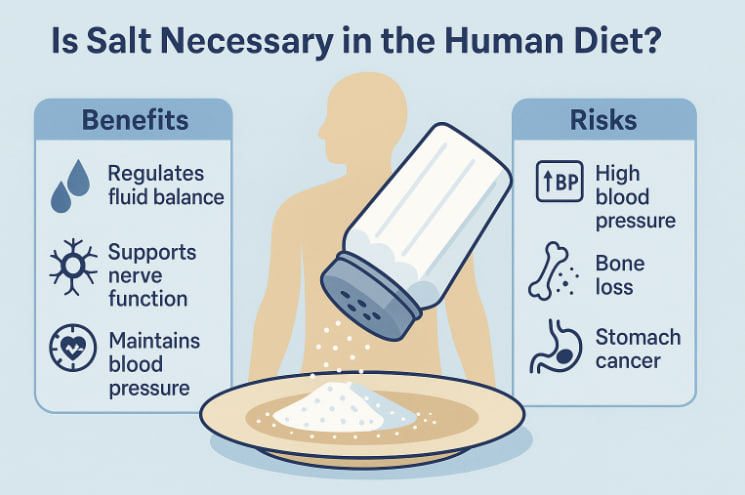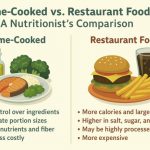Salt, or sodium chloride, is one of the oldest and most essential seasonings in human history. Beyond flavor, salt plays a vital biological role. But how much do we really need—and when does it become a health risk? Understanding the importance of salt helps us balance its benefits with potential harms.
Why the Body Needs Salt
Salt is a primary source of sodium, a mineral required for multiple body functions:
- Regulates fluid balance: Sodium helps control the amount of water inside and around cells.
- Supports nerve and muscle function: Sodium is essential for nerve impulses and muscle contraction.
- Maintains blood pressure: It helps sustain blood volume and pressure in the circulatory system.
- Assists nutrient absorption: Sodium supports glucose and amino acid transport in the intestines.
Without enough sodium, symptoms may include fatigue, confusion, muscle cramps, or low blood pressure—a condition known as hyponatremia.
How Much Salt Do We Really Need?
Health authorities recommend modest intake:
- WHO (World Health Organization): Less than 5 grams of salt per day (about 2 grams of sodium) for adults.
- Most people consume too much: Many diets—especially in industrialized countries—exceed 9–12 grams of salt per day.
Natural foods (fruits, vegetables, grains) contain very little sodium, so added salt is the main source.
The Risks of Too Much Salt
Excessive salt intake is linked to several health issues:
- High blood pressure (hypertension): A major risk factor for heart disease, stroke, and kidney damage.
- Calcium loss: High sodium can increase calcium excretion, potentially affecting bone health.
- Increased risk of stomach cancer: Linked to salted, preserved foods in some populations.
- Water retention and bloating: Especially in people sensitive to sodium.
High-sodium diets are often tied to ultra-processed foods like chips, instant noodles, fast food, canned soups, and deli meats.
Does Everyone Need the Same Amount?
No—individual needs vary based on:
- Age
- Activity level (sweating increases sodium loss)
- Climate (hot environments may require slightly more salt)
- Medical conditions (e.g., heart or kidney disease may require sodium restriction)
Athletes and people in hot climates may benefit from more sodium during prolonged sweating, but most people still get more than they need.
Tips for a Balanced Salt Intake
- Taste food before salting—many people add salt out of habit.
- Use herbs, spices, lemon, or vinegar for flavor without sodium.
- Limit processed and restaurant foods—they contain most of the salt in modern diets.
- Read labels: Choose low-sodium versions when possible.
- Stay hydrated, especially if reducing salt.
Glossary
- Sodium — A mineral essential for fluid balance and nerve/muscle function.
- Hyponatremia — A condition caused by low sodium levels in the blood.
- Hypertension — Chronically high blood pressure.
- Processed foods — Foods altered from their natural state, often high in salt, fat, and sugar.
- Electrolytes — Minerals (like sodium and potassium) important for nerve and muscle function.


